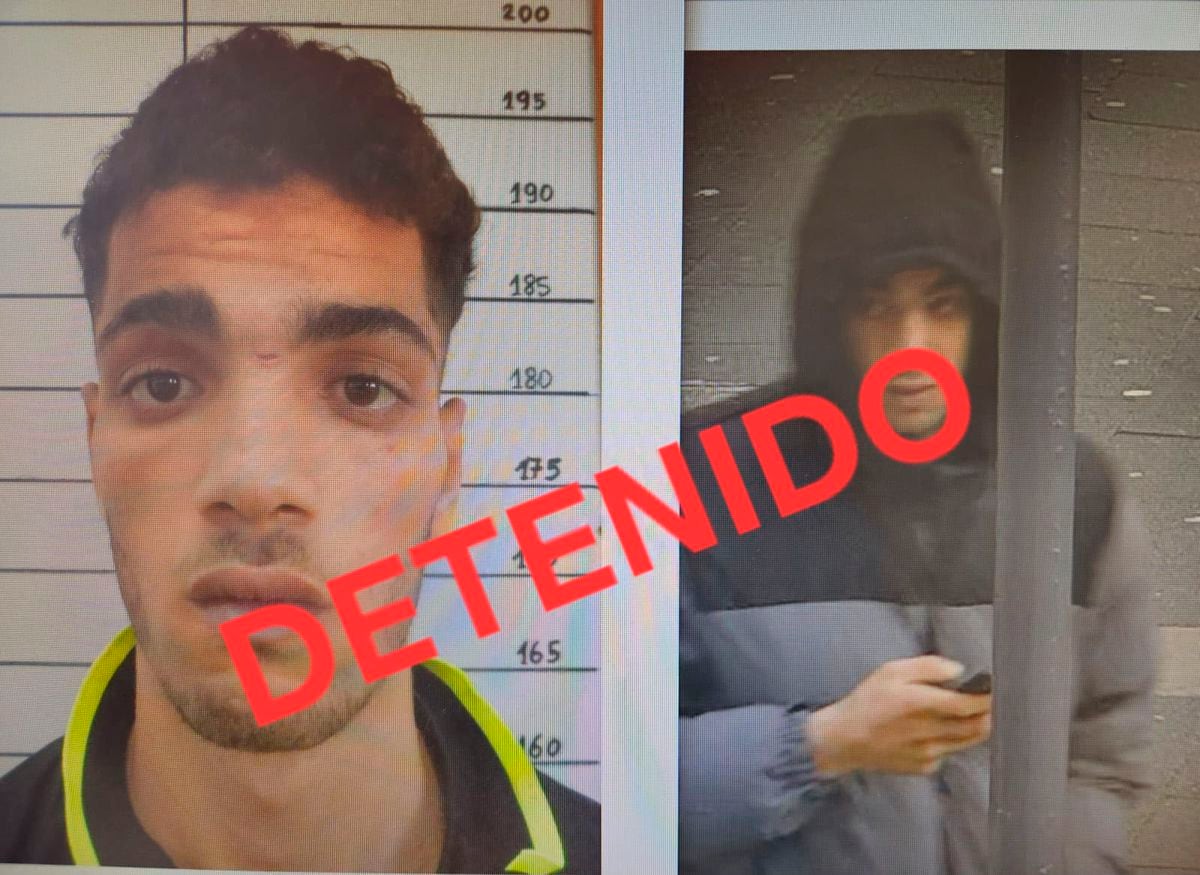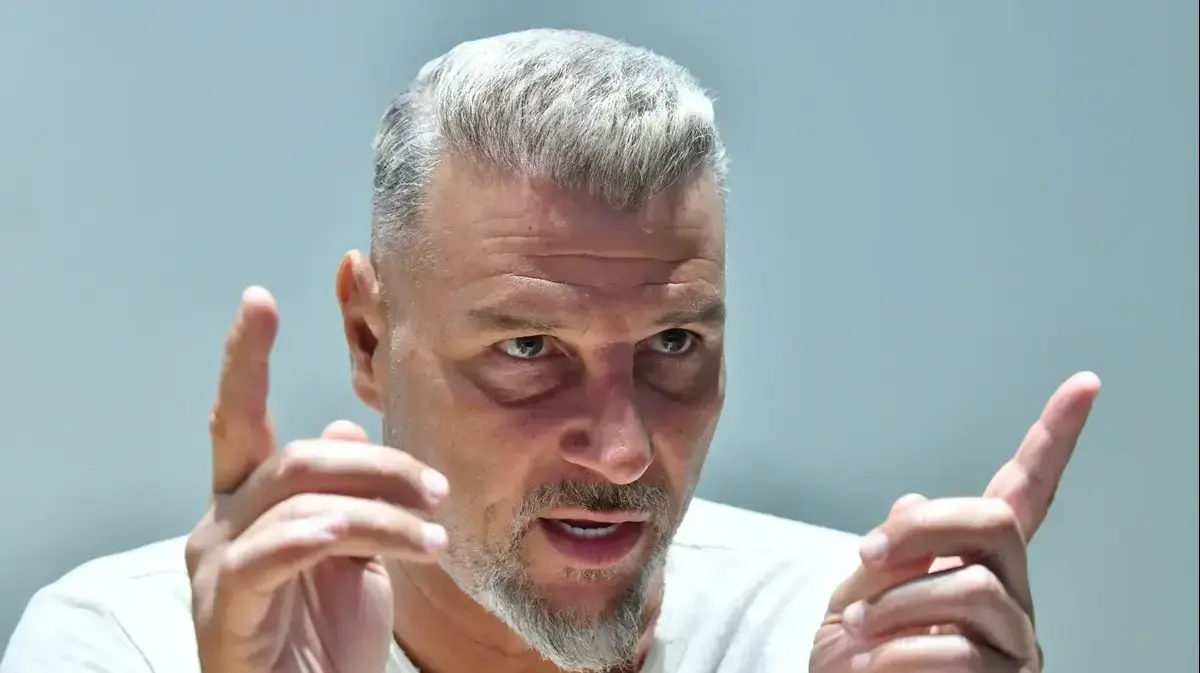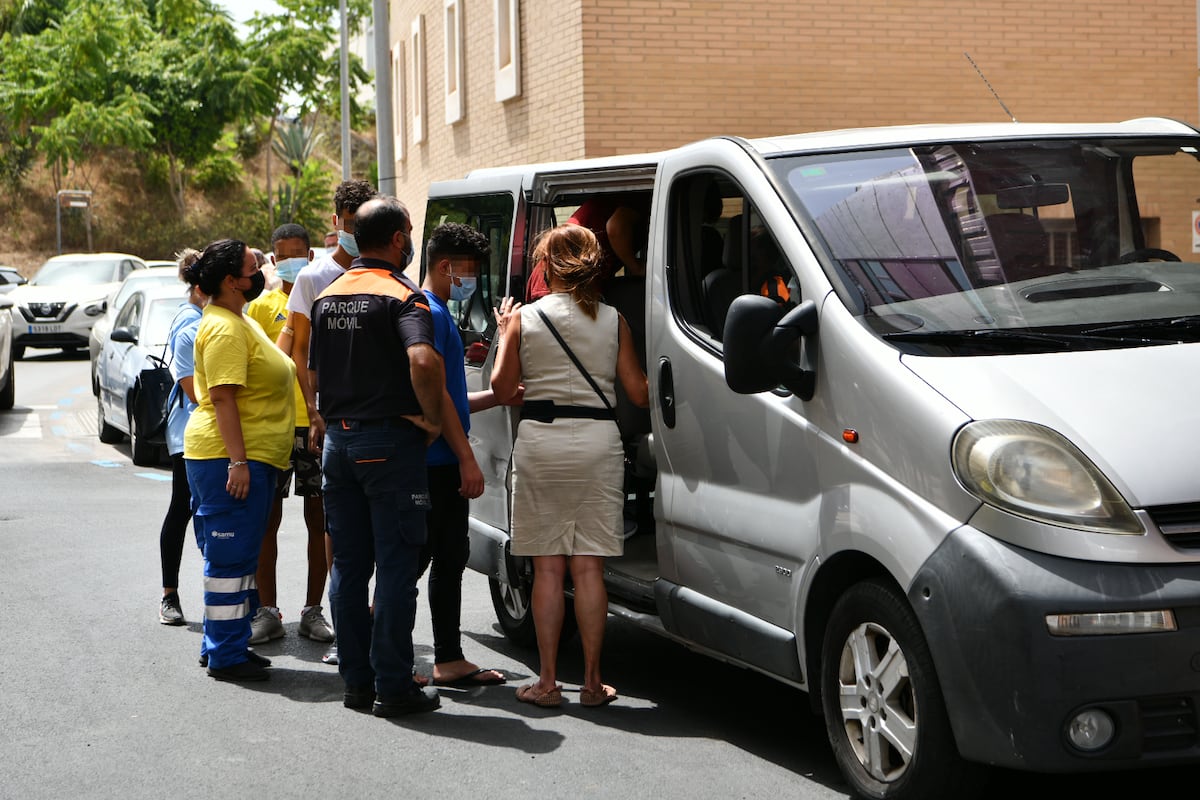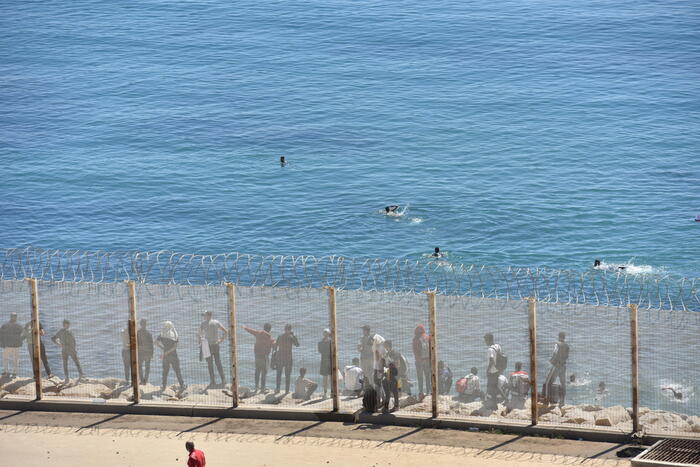Aschraf pleaded in the waters of Ceuta on Wednesday May 19: "Try to understand us!" He asked the Spanish military for understanding while he stroked and cried, tied to some plastic bottles that served as a float. He did not dare to step on land because he believed that the soldier, who was speaking to him in his language from the shore, was going to hit him. Finally, this 16-year-old man came out of the water, tried to escape by climbing a wall, but was caught. And, after being consoled by the soldiers themselves, he was returned to Morocco that same day. Just two days earlier, 8,000 irregular migrants had just entered Ceuta without encountering any opposition from the Moroccan authorities. Of these, between 2,000 and 3,000 are minors.
Now Aschraf is in Casablanca, in the small house of Miluda Gulami, 46, his second adoptive mother (he had a first, Rabia Rguibi). From there he had left in February without notifying anyone. And now he has returned with his family to the shanty town of Er Hamna, in the Sidi Mumen district, one of the poorest in Casablanca. The area is famous throughout the country because there lived the 11 young Islamist kamikazes who carried out the largest attack in the history of Morocco in 2003, with 45 deaths. And from there dozens of Islamic State fighters left for Syria in 2015.
Aschraf told EL PAÍS this Wednesday that those images of him that have gone around the world with the bottles are actually part of his third frustrated attempt to reach Ceuta in just 24 hours.
“I found out that they were opening the border when I was in the streets of Al Kasar el Sigue (a town near Tangier).
Other children told me and we asked a
mon-ami
(
my-friend
, in French), which is what we call sub-Saharan Africans.
And they told us that yes, they were letting people pass ”.
Aschraf on the 19th while trying to enter Ceuta with a float made of bottles.
JON NAZCA / REUTERS
The first attempt was made on Tuesday morning. He reached the fence, but turned back to Fnideq, the old Castillejos. And Tuesday night he tried a second time. He managed to swim to Ceuta. “But they caught me and put me in a center, where I spent the night. The next day, Wednesday morning, they gave me a towel and some cookies and threw me towards Castillejos ”. Within a few hours, he picked up the bottles and tried a third time. “I took them so as not to get tired swimming. This time, after they caught me, a soldier accompanied me walking towards the border with Morocco ”.
Aschraf implored, tied to the bottles, that they understand. But its history is not easily understood in Spain if the social context that persecutes dozens of minors in Morocco is not explained. Aschraf was abandoned by his biological mother three days after he was born. The mother was the age Aschraf is now. Being a single mother in Morocco is a stigma that spreads like a corrosive stain throughout the family. And that is why many choose to deliver their babies.
Sometimes when a single mother reveals that she is pregnant, her own parents kick her out of the house.
Society often treats them as prostitutes.
Relationships outside of marriage are prohibited by law.
And children like Aschraf are known in the country's dialect Arabic as '
wlad
lehram
', children of sin.
They are not entitled to a paternal surname, a pension or any inheritance.
The attempts undertaken in 2017 by a single mother and a sympathetic judge to reverse this situation ran into a ruling by the Moroccan Supreme Court in 2020 that denies parental affiliation to children born out of wedlock.
A humble home
Aschraf never knew his biological parents. The guardianship or
kafala
of Aschraf was awarded to Rabía, the woman to whom the biological mother gave the child. But Rabía passed away in 2016, when Aschraf was 11 years old. He was then adopted by Miluda Gulami in a very humble home, with a corrugated roof, in the Sidi Mumen neighborhood. "I had breastfed him for 15 days, when Rabía adopted him," he explains. "So when she died, who was a close friend of my mother, I thought that if I didn't pick him up, the child would stay on the street."
Miluda's house has two rooms.
On the one hand, a small living room where it only has two seats, a table and a small flat-screen TV attached to the wall.
The other room is even smaller and serves as a kitchen and bedroom.
Miluda sleeps in the living room and Aschraf and Miluda's three children sleep in the kitchen.
Aschraf left home one day in February at dawn.
“I filed a complaint with the police station,” says Miluda, “but I didn't hear from him in all this time, until I saw his photo.
I thought he was dead.
But later I saw the video [where it appears with the bottles] and I was very happy ”.
Aschraf's sister is called Rayá Errad, she is 30 years old and is the daughter of Rabía, her first adopted mother.
“My brother is very good.
I remember when I was little and we sometimes bathed in the sea.
He liked to climb on my shoulders and jump into the water.
He is very polite and very shy.
He hardly knows how to defend his rights, he allows himself to be taken away without defending what is his.
When he left home we put his photos on social media.
But I did not imagine that he wanted to go to Spain, he never commented on any of that. "
Aschraf explains that the four months he has spent on the street were tough.
“Sometimes he slept next to a train station.
And other times I was hungry ”.
He explains that all he wanted to do in Spain was fulfill his dreams, that he has friends who have already achieved it.
"I wanted to earn money and send it to my family so they can live well."
Now there are two local NGOs, Sanad and Rawae, who have promised Aschraf to find him accommodation in the same neighborhood of Casablanca, so that he can live independently and close to his adoptive family.
They have also promised him a monthly financial aid so that in addition to studying, he can learn a trade.
Aschraf has opted for the hairdresser.
His image with the bottles, the desperate cry of "try to understand us", has moved many people in Spain and Morocco.
But the stigma of being a "child of sin" will continue to haunt Aschraf and many like him, all the way to the border with Ceuta.
An insult fueled by the recent ruling of the Moroccan Supreme Court.









